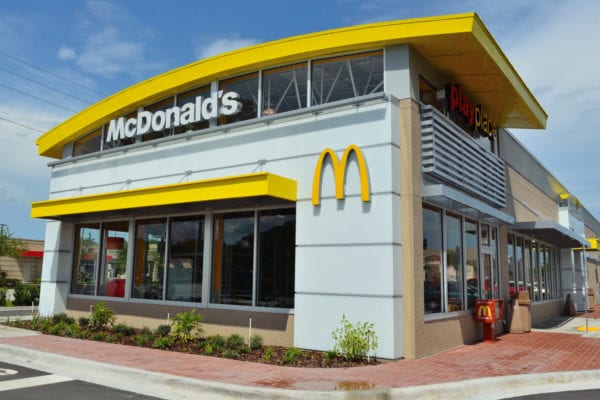Skift Take
KFC is Yum Brands' big winner right now, so this deal looks like a win-win for a Thai company looking to diversify from the alcohol business in a Buddhist country.
— Kristen Hawley
Thai Beverage, the spirits giant that makes Chang beer and SangSom rum, is expanding into the fast-food business to take advantage of the rising appetite for fried chicken in Asia.
ThaiBev agreed to purchase more than 240 existing KFC restaurants in Thailand for about 11.3 billion Thai baht ($340 million). A deal is also in place for the company to take over stores that are being developed, with the cost of those locations to be determined when the transaction closes, according to a filing. KFC is operated by Louisville, Kentucky-based Yum! Brands Inc., which also runs the Taco Bell and Pizza Hut chains.
Billionaire Chairman Charoen Sirivadhanabhakdi, who founded the company, has been seeking to diversify ThaiBev’s operations for years, with a goal of generating more revenue from nonalcoholic beverages by 2020. The fast-food push comes as Western restaurant companies increasingly target Asia as a key market for growth. For Thai Beverage, the KFC deal is a bid to seize on the popularity of chicken in Asia, according to Nirgunan Tiruchelvam, a director at Religare Capital Markets in Singapore.
“The KFC acquisition is a very good way of exposing oneself to the rise of quick-service restaurants in Asia, especially the rise of chicken consumption,” he said.
Thailand accounted for 2 percent of KFC’s sales in emerging markets last quarter. It was the only region in that division that saw sales drop year-over-year, posting a 2 percent decline.
More Deals
Sirivadhanabhakdi previously expanded his property business amid government measures to curb alcohol consumption in Buddhist Thailand. He was ultimately forced to list the company unit in Singapore in 2006 after activists and monks held protests to block a local share sale by the company.
The company’s long-term strategy involves generating 50 percent of its revenue from countries outside Thailand and nonalcoholic beverage by 2020. That’s expected to drive more deals in the region. Sales outside that country amounted to less than 4 percent in the last fiscal year, according to data compiled by Bloomberg.
“Thai Beverage is a company that is looking to expand in the food and beverage space in Southeast Asia,” Tiruchelvam said. “It has very strong core cash flow from its spirits business, and it’s expanding into other areas.”
–With assistance from Sterling Wong
©2017 Bloomberg L.P.
This article was written by Craig Giammona from Bloomberg and was legally licensed through the NewsCred publisher network. Please direct all licensing questions to [email protected].
![]()



